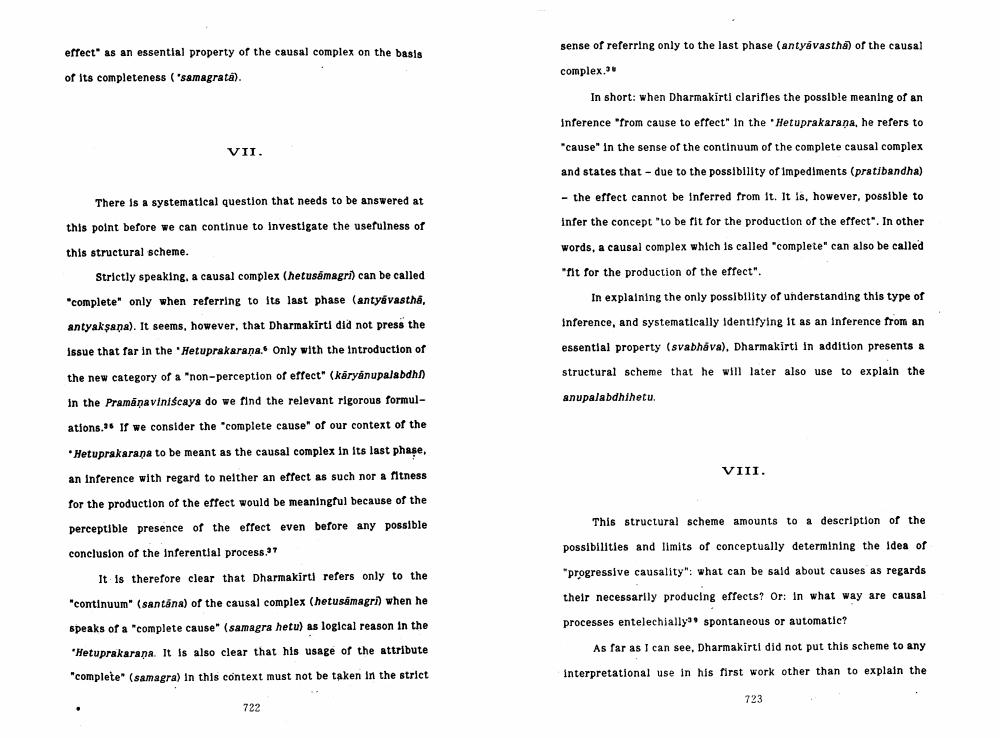________________
effect as an essential property of the causal complex on the basis
sense of referring only to the last phase (antyavastha) of the causa!
of its completeness ('samagrata).
complex.
In short: When Dharmakirti clarifies the possible meaning of an
Inference from cause to effect in the Hetuprakarana, he refers to
VII.
'cause in the sense of the continuum of the complete causal complex
and states that due to the possibility of impediments (pratibandha)
There is a systematical question that needs to be answered at
the effect cannot be inferred from it. It is, however, possible to
this point before we can continue to investigate the usefulness of
Infer the concept to be fit for the production of the effect". In other
this structural scheme.
words, a causal complex which is called "complete" can also be called
fit for the production of the effect".
Strictly speaking, a causal complex (hetusamagri) can be called "complete" only when referring to its last phase (antyavastha, antyaksana). It seems, however, that Dharmakirti did not press the Issue that far in the 'Hetuprakarana.. Only with the introduction of the new category of a "non-perception of effect" (káryánupalabdh
In explaining the only possibility of understanding this type of Inference, and systematically identifying it as an Inference from an essential property (svabhava), Dharmakirti in addition presents a structural scheme that he will later also use to explain the
in the Pramanaviniscaya do we find the relevant rigorous formul
anupalabdhihetu.
ations.
If we consider the complete cause of our context of the
• Hetuprakarana to be meant as the causal complex in its last phase,
an Inference with regard to neither an effect as such nor a fitness
VIII.
for the production of the effect would be meaningful because of the
perceptible presence of the effect even before any possible
This structural scheme amounts to a description of the
conclusion of the inferential process.97
It is therefore clear that Dharmakirti refers only to the "continuum" (santana) of the causal complex (hetusamagri) when he
possibilities and limits of conceptually determining the idea of "progressive causality": what can be said about causes as regards their necessarily producing effects? Or: In what way are causal processes entelechially" spontaneous or automatic?
speaks of a complete cause" (samagra hetu) as logical reason in the
'Hetuprakarann. It is also clear that his usage of the attribute "complete" (samagra) in this context must not be taken in the strict
As far as I can see. Dharmakirti did not put this scheme to any Interpretational use in his first work other than to explain the
722
723




